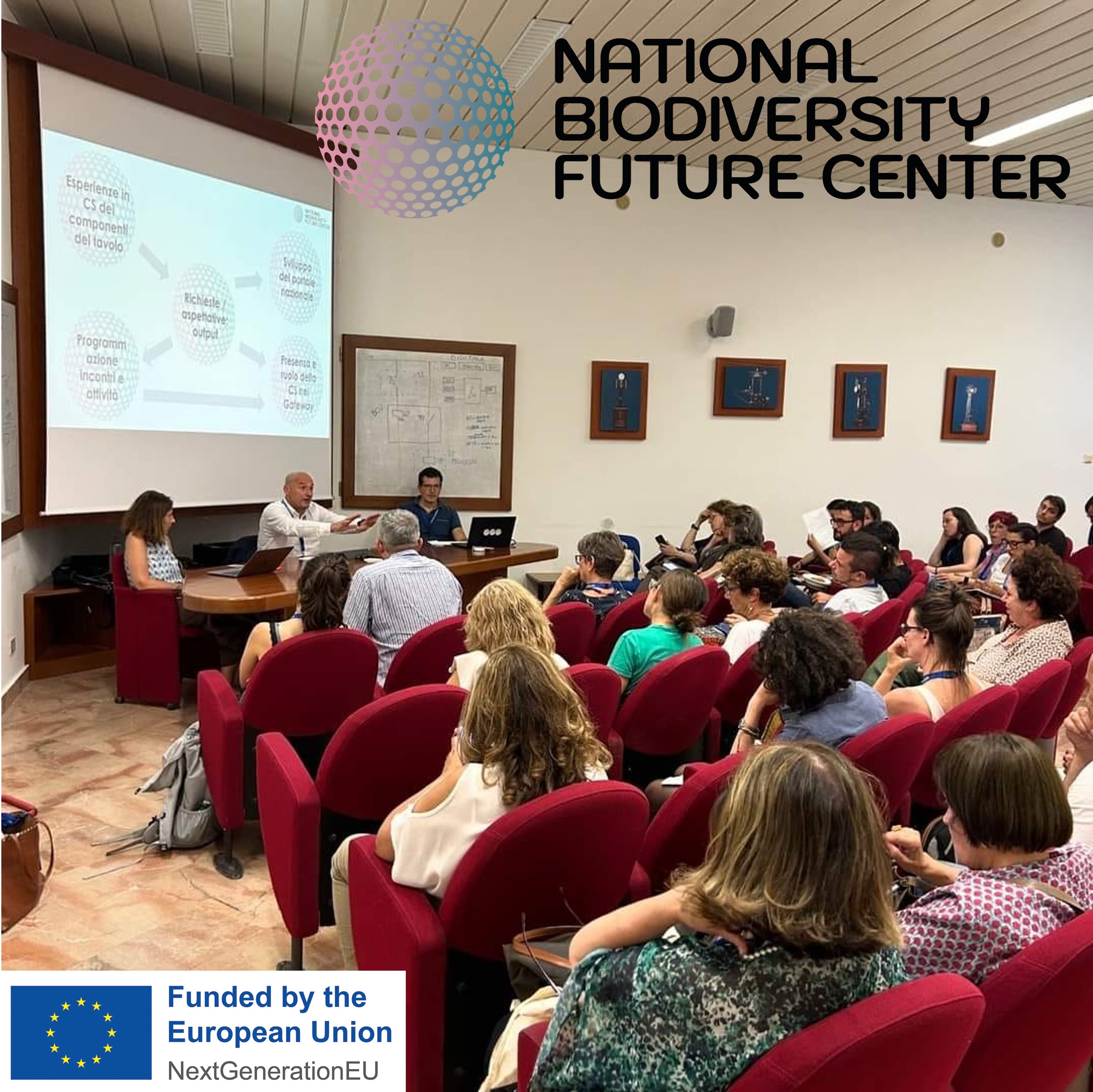
Italy: the NBFC Working Table on Citizen Science was born
Andrea Sforzi
June 17, 2024, 1:41 p.m.
In 2022 the National Biodiversity Future Center (NBFC) was established in Italy. It is one of five national centers dedicated to frontier research, funded by the National Recovery and Resilience Plan (PNRR) in the framework of Next Generation EU. Established under an initiative of the National Research Council (CNR), NBFC is the first National Research Center dedicated to conservation, monitoring, restoration and valorisation of biodiversity. The Center is composed of a broad national network of universities, research centers, associations, and other private and social entities. The Consortium has the opportunity to take concrete, effective and immediate actions to halt the erosion of biodiversity, promoting conservation, restoration and enhancement of biodiversity in science and politics.
Through NBFC more than 2000 researchers and 48 partner institutions committed to monitoring and preserving ecosystems and biodiversity all over the country. NBFC focuses on the Mediterranean area (biodiversity hotspot) and addresses global challenges related to the protection and restoration of marine, coastal, transitional, urban and terrestrial ecosystems: in particular, it carries out research and promotes the development of practices for monitoring, conservation, valorisation and restoration of the biodiversity, including genetic and functional aspects, in order to counteract the effects of anthropogenic impact and climate change and to support ecosystem services. At the same time, NBFC supports research and innovation activities for the enhancement of biodiversity through processes of circular economy and restoration ecology and economy, with the primary objective of protecting the resources provided by the ecosystems and at the same time ensuring the quality of personal well-being.
Biological diversity in all its forms, from microbes to plants and animals to humans with its cultural diversity, is an asset of crucial importance in the Mediterranean - and particularly in Italy -, given that here is concentrated some of the most significant biological diversity of the entire Europe: 60,000 animal species, 10,000 vascular plants and more than 130 ecosystems.
By its very nature, Citizen Science transversally affects all the scientific themes of NBFCs and can constitute a qualifying element to make even more visible what has already been done, while promoting the development of new projects and the collection of good practices, as well as further raising public awareness.
With these premises, on May 21st 2024, as part of the first NBFC National Biodiversity Forum, the NBFC Working Table on Citizen Science was officially launched. Prof. Isabella Saggio, head of Spoke 7 and Prof. Francesco Frati, head of Spoke 3, chaired the meeting, underlining how Citizen Science constitutes an increasingly important and transversal opportunity, capable of carrying the values and activities of the center well beyond the natural end of the project. And recognizing how Citizen Science can represent one of the most significant elements, in the short and medium term, of the impact that the NBFC can exert on society. These are the reasons why it was deemed necessary to establish this Table. The coordinator of the NBFC working table on Citizen Science (Andrea Sforzi, Director of the Maremma Natural History Museum and President of Citizen Science Italia) was formally presented in the same occasion. He introduced the main concepts underlying the role of CS within NBFC and outlined the objectives and actions that the Table aims to carry forward in the coming months.
First of all, NBFC internal communication channels will be activated to ensure that each and any researcher, doctoral student and research fellow interested in Citizen Science had the opportunity to participate. At the moment, about 50 scientists are registered, belonging to five different Spokes, together with a representative of the platform on digitalisation of scientific collections. More are expected to join the Table in the coming weeks. The work program will proceed following two parallel but interrelated paths: the first dedicated to those who are interested in the topic of CS, with no or limited specific experience; the second dedicated to those who have extensive experience in the field. Within the first path, a two-day course will be promoted (possibly repeatable over time) aimed at providing general principles, indications, examples of projects, verification methods, impact calculation, etc.
The second path will include occasions of discussion and interaction between project coordinators, in order to share good practices, find common needs and opportunities, with the aim of outlining a strategy for the integration and development of different Citizen Science activities within NBFC.
A further action, in collaboration with the Citizen Science Italia (CSI) association, will be the creation of a national platform of Citizen Science, based on the open source software developed in the framework of EU-citizen.science. The supervision of Citizen Science Italia will ensure a direct contact with he national CS network, as well as keeping collaborative relationships with the European CS community even after the end of NBFC.
A further general objective of the NBFC working table on Citizen Science will be to support the dialogue initiated with the Italian Ministry of University and Research regarding the creation of a National Reference Center for Citizen Science, with the aim of building up a stable governmental structure to support Citizen Science in the country, providing services, identifying good practices and financing projects.
Last but not least, during the Palermo meeting two "sampling weeks" were proposed, which will affect all Spokes from 7 to 13 October 2024 and from 9 to 15 June 2025, respectively. These will be two extraordinary opportunities to promote parallel activities of monitoring through Citizen Science all over the country, to give further visibility and relevance to the initiative and actively involve the population.